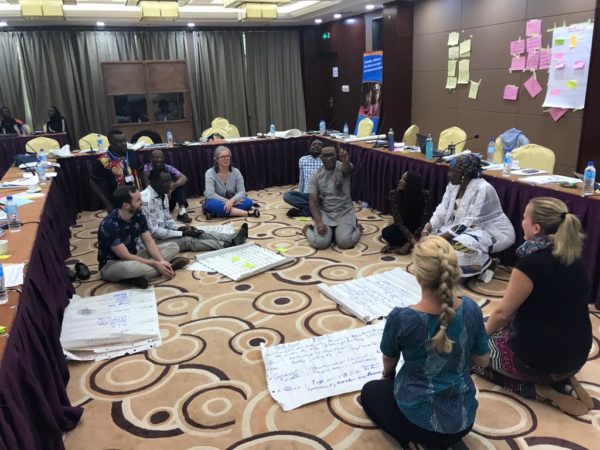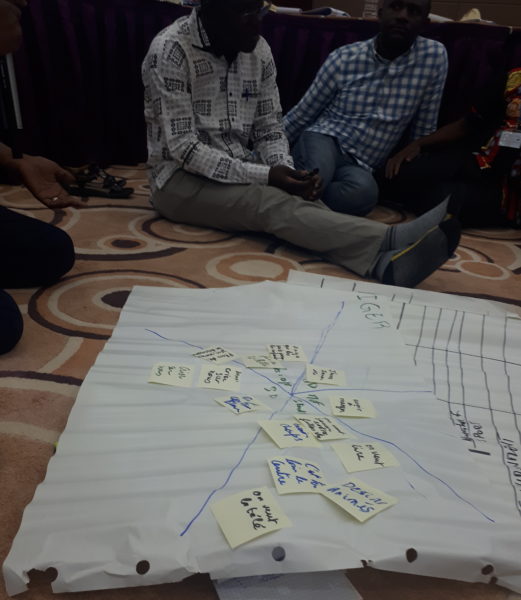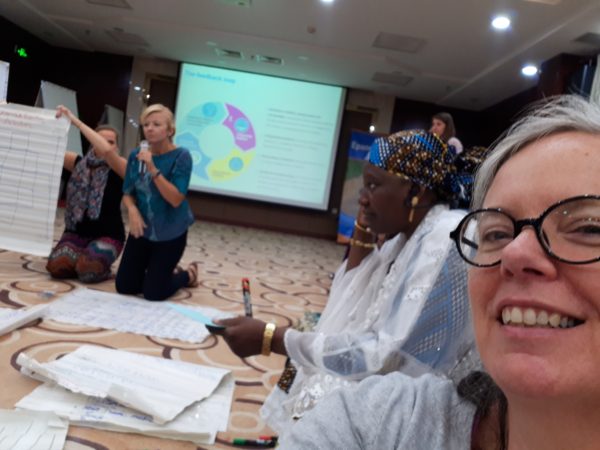Children love to play! And if this week is anything to go by, so do my adult colleagues! This week in Niamey, Niger, a group of programme staff from the Lake Chad countries (Nigeria, Niger and Cameroon) participated in a training on developing child-friendly feedback mechanisms, part of our organisational commitment to improving accountability to our stakeholders. During the training, the adults got to role-play being children of different ages, who participate in Plan International’s activities, and we turned out to be a very playful group indeed!

Plan International has recently developed child-friendly ways to engage with children to ensure that they can participate, which are age-appropriate and take into account differing challenges that children may have (for example, children who can’t read or write, children who are visually impaired or who have physical challenges). Using emojis, or drawing pictures to represent activities, with ranking exercises were all discussed and yes, role-played.

My colleagues at the training spoke English and French, and on the first day, we realised that many of the words and terms don’t translate easily into French – for example, ‘accountability’ in English broadly translates as ‘redevabilité’ (in French, it refers to the responsible use of power) and when we tried to translate an industry-accepted definition of accountability (‘A right of anyone who is affected by the use of authority or power,
to hold those, who are in power, accountable for what they do) we also struggled. These difficulties only reinforced for us, the need to work with and also explain concepts to children, in ways that they will understand. This is also true for those who may be marginalised, for reasons such as speaking a minority language, or being an unaccompanied child.
When I was a child, my parents used to say that children should be seen and not heard, but children are our key constituency and finding ways to listen to them and to include them in programming choices is vital. For many reasons, including their age, children may struggle to be heard, making these mechanisms so important. Furthermore, they also play a key role in strengthening prevention and reporting of sexual exploitation and abuse.
The training also looked at the systems and procedures for receiving, classifying and responding to feedback and complaints more broadly, eg from community members, service providers or other organisations.

The UN Convention on the Rights of the child groups children’s rights in four categories: survival, development, protection and participation. In order to ensure that we facilitate access to these rights, we need to listen to children. Article 31 says “that every child has the right to rest and leisure, to engage in play and recreational activities appropriate to the age of the child”.
The child-friendly mechanisms go some way to making sure that listening to children can also be fun for them.